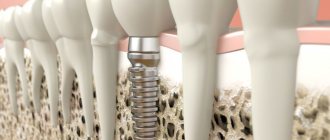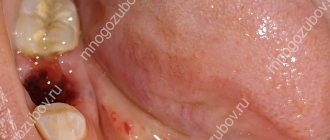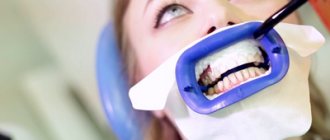Home>Articles> How long does bad breath last after drinking alcohol?
quick menu (hide)
- For what reasons does fumes occur?
- What factors have an impact?
- Prevention before a feast to relieve hangover syndrome
- How to speed up the weathering of fumes?
- Fast and effective ways
There have been situations in the lives of many people when they want to take a walk and not have to deal with fumes after waking up. The unpleasant odor of alcohol on your breath can be a source of gossip at work. There are several proven methods that will help alleviate the condition and restore vigor and strength to the body.
What is a fume
Ethanol is an active substance that affects internal organs and systems. The substance is found not only in high-proof drinks, but also in low-alcohol products. Ethanol provokes the development of intoxication and the occurrence of withdrawal syndrome with a pronounced fume that lasts for about 12–24 hours. Why does fumes appear and last so long?
After drinking alcohol, ethanol enters the circulatory system and spreads throughout the body. To eliminate the harmful substance, the body converts ethanol into acetaldehyde. The vapors of this organic compound produce an unpleasant stench in the mouth, which can last for about 3 days in a row.
The aldehyde gradually turns into acetic acid, the vapors of which remain in the body for a long time. The smell becomes less pronounced. Passing through the circulatory system, the vapors enter the lungs and lead to the appearance of an even more unpleasant, pungent aroma from the oral cavity.
Reasons for appearance
Ethyl alcohol in the body with the help of a liver enzyme (scientifically it is called alcohol dehydrogenase) is broken down into its components: acetaldehyde, acetic acid and water. To get rid of them, the body uses all systems: intestines, bladder, sweat glands and lungs.
It is that part of the metabolites that is excreted through the lungs that gives the breath its characteristic aroma.
Trying to interrupt, muffle, or disguise it is useless. It will persist as long as there is the slightest trace of alcohol in the body.
How long will the fume last and what does it depend on?
How long does it take for the fumes to disappear? The unpleasant aroma in the mouth that occurs after drinking alcohol lasts quite a long time. However, it is impossible to accurately calculate the time to get rid of an unpleasant symptom, since the duration of a fume is influenced by a number of factors, namely:
- Age category. In young people (under 30 years of age), the foul odor does not last long, since the metabolic process at this age functions without slowing down. For the older generation, the unpleasant odor will linger for a long period of time. It will be more difficult for the fumes to disappear after drinking alcohol.
- Health status. The presence of any illnesses can slow down the process of removing ethanol from the body.
- Floor. Considering the fragility and tenderness of the female body, it is worth considering that the fair sex will excrete ethanol longer than men. In this case, women's breath smells more unpleasant.
- Body mass. The breakdown of alcohol occurs faster when there is a lot of weight.
- The amount of alcohol consumed affects the duration of alcohol retention in the circulatory system and the time of release of acetic acid. How long does alcohol stay in the blood after drinking? According to experts, alcohol can be present in the blood for up to 4-6 days.
- Individual characteristics of the body.
- Speed of drinking alcohol. When savoring the drink for a long time, the circulatory system gradually distributes the alcohol throughout the body. In this case, alcohol removal will be carried out at a certain speed and without failure. When drinking high-proof products quickly, the fume will be more persistent, since the body is suddenly filled with ethanol.
- Snack. Simultaneous eating with drinking alcohol provokes a slower absorption of ethanol into the circulatory system and a prolonged elimination of decay products. To quickly remove alcohol toxins, you should eat a light snack while drinking alcohol.
Prevention
It is impossible to prevent the appearance of alcoholic amber. Even a small amount of alcohol consumed will be processed by the body, causing bad breath. Therefore, as experts advise, to avoid this phenomenon, it is better not to drink at all.
To reduce the consequences of drinking alcohol, you need to have a good snack at the table, and the dose of alcohol should not exceed reasonable limits. It is also not recommended to mix different drinks; preference should be given to 1 type of alcohol.
To reduce the morning amber, the day before, immediately after a feast, experts recommend taking some medications, for example, sorbents (Enterosgel, Filtrum, Smecta), which will bind the breakdown products of alcohol and prevent its absorption into the blood. This method will ease the work of the liver and prevent a hangover.
If fumes do appear, you can try to disguise the odor using improvised means.
Table of the rate of alcohol removal from the body
During the holidays, the question becomes relevant: how long does it take for the smell of beer and the fumes from vodka to dissipate? The table will reveal the secret on the exciting topic of how long the smell lasts.
| Type of alcohol | Withdrawal time |
| 300 ml vodka or whiskey | 12–13 hours |
| 200-300 ml wine | 3–4 hours |
| 0.5 l beer | 3–4 hours |
| 300 ml cognac | 14–15 hours |
| 0.3 l champagne | about 3.5 hours |
| 300 ml liqueur | 9.5–10 hours |
| 0.3 l gin and tonic | 3–3.5 hours |
| 0.3 l port wine | 7.5–8.5 hours |
How long after drinking beer will fresh breath return?
How long does the smell of alcohol last? After drinking one bottle of beer, fresh breath returns after 3–5 hours. If you urgently need to get behind the wheel, and your breath retains the aroma of fumes, you can use the following herbs: mint, bay leaf, parsley, dill. A small part of the herb must be chewed in the mouth for about 10 minutes, which will restore freshness of breath. Also, to eliminate alcohol fumes, you can enjoy a piece of chocolate, seeds, fresh tomato or cucumber.
Recipes for decoctions that effectively cope with fumes
Wormwood decoction: a couple of tablespoons of the herb are poured into 200 ml of boiling water and cooked for about 5-6 minutes over low heat. The resulting decoction is used to rinse the mouth.
White alder infusion
300 ml of water is poured into an enamel container and brought to a boil. Place 3 tbsp in boiling water. l. white alder. Turn off the heat, cover the container with a lid, and leave for about 25–30 minutes. After infusion, use the liquid to rinse the mouth.
Decoction based on mint leaves
A few tablespoons of dried mint are placed in an enamel container, poured with boiling water and cooked for 20 minutes. After cooling the resulting liquid, drink in small sips (20–50 ml) every 10–15 minutes. In a similar way, you can quickly overcome the fumes after vodka.
Remedies that do not help eliminate fumes
There are a number of products containing a large dose of vitamins and flavorings that do not help remove unpleasant odor from the mouth. These include:
- Garlic – enhances the aroma from the mouth.
- Preparations of the Anti-police type, containing a large number of flavorings that are unable to cope with the elimination of odor from the oral cavity.
- Chewing gum with menthol only increases the fumes.
Driving while intoxicated or while impaired may result in a fine or loss of license. If you urgently need to get behind the wheel, but the fumes do not go away, it is best to use folk remedies that interrupt the unpleasant aroma. It is also advisable to take a contrast shower and walk a little in the fresh air.
Whatever method is chosen, it is worth remembering that drinking strong alcoholic beverages should be a barrier to becoming a road user. Driving requires quick decision-making, and alcohol dulls all processes in the body and it becomes impossible to soberly assess the situation on the road in a timely manner. Any delay could cost your life.
conclusions
To choose an effective way to remove fumes quickly at home, take into account the composition, the dose of what you drink, and choose the means to eliminate the consequences. Comments from people who have found themselves in this situation do not directly answer this question. One method helped some, but nothing helped others until the amber disappeared on its own. The most important thing that will help is not to drink in large doses, consume natural products that do not contain dyes or food additives, do not overeat with fatty snacks and do not mix alcoholic drinks of different strength, type, and composition with each other. And then in the morning there will be no headache, the amber will be light and will soon pass. There is no need to neglect your health.
Author of the article: Yakovlev Evgeniy Anatolyevich
Narcologist, Candidate of Medical Sciences.
Why does it smell like fumes?
It is unlikely that anyone will dispute the fact that what we drink leaves its smell for some time, be it coffee, cola or alcohol.
So, if you drink whiskey, then for a while you will smell of whiskey, if you drink beer, then beer, if chilled wine, then... in general, the idea is clear. But in truth, this smell is not actually the “alcoholic” breath that most people talk about. In fact, the smell from the drink you drank is short-lived, just like almost everything else you ingest. Real “alcoholic” breath is more internal in nature, and is not so easy to get rid of.
When a person drinks alcohol, the alcohol is absorbed into all water-bearing tissues of the body, including the blood. A small amount of alcohol “evaporates” from the blood into the lungs. As you exhale, the alcohol “evaporated” from the blood appears in your breath. Scientists have found that the ratio of alcohol in breath to alcohol in blood is 1:2100 , so the breath test provides an accurate measure of the level of intoxication.
Once in the human body, alcohol is not digested, like most substances, but is quickly absorbed and enters the body. The body itself views it as a toxin, so your body uses the liver to metabolize alcohol.
Without delving into the details of biochemical processes, it can be noted that while the liver processes a portion of alcohol, the rest of it travels along with the blood throughout the body, visits the brain, lungs, and this is the cause of the so-called “alcoholic” breath that everyone is talking about.
In simple terms, during the processing of alcohol, it develops a sweetish smell that is familiar to many, and surprisingly, this smell is the same, no matter what type of alcohol you drank.
The source of the smell of fumes is the human lungs, which is why it is so difficult to get rid of it.
Danger
This unpleasant aroma does not pose any great physical danger to the drinker. However, it is better for those who suffer from this phenomenon not to communicate at close range with small children. From strong alcoholic amber, a baby may have an allergic reaction in the form of skin rashes.
If a child often sleeps in a room where a drunken relative is, he may experience oxygen starvation and in the future he has a high risk of developing chronic diseases of internal organs.
Calculation of alcohol “weathering” time
When people drink alcohol, the body perceives it as a toxin and tries to convert it into acetic acid. At the same time, the body manages to process only 90% of the alcohol that enters it. The rest of the alcohol comes out through the pores in sweat or urine. It is also excreted through the respiratory system. Let's look at how long it takes for alcohol to leave the blood. So, how long can alcohol stay in the breath, or how long does alcohol stay in the blood?
Blood alcohol content table
Time to remove alcohol from the blood
So, how long does alcohol stay in the blood - the table is based on the main factors and depends on how much and how long ago the person drank.
Alcohol is removed from the lungs at a constant rate of about 0.015% BAC (Blood alcohol content) per hour, which is about one drink per hour, the maximum intoxication will be about 0.02%. Within one hour, the alcohol level will return to normal (it will be around 0). On the other hand, if the alcohol level is 0.20% - twice the legal driving limit in many countries - it will take more than 13 hours to clear your breath to zero BAC. How long alcohol stays in the blood can be seen in the table above.
What influence do various factors have on the weathering of unpleasant amber?
Any product containing alcohol contains a different proportion of ethyl alcohol, which will decompose and even if you drink a small dose, this will lead to the appearance of this type of “fragrance”. The duration depends on the following indicators:
Weight series. The greater the weight, the worse the splitting process goes. Fat deposits are an obstacle to the elimination of toxic substances.
Age. A very young organism, like a very old one, cannot instantly cope with the metabolism in its body. The middle age category can cope with this task more quickly.
Floor. A man processes ethanol earlier than weak, feminine representatives.
Presence of diseases. If there are diseases of the liver, gastrointestinal tract, endocrine and cardiovascular systems, then the breakdown of alcohol will take longer.
Fortress. The higher the alcohol content in the product taken, the more difficult it is for metabolism to overcome it and remove it.
Exceeding the measure. You can drink light wine, but if you drink a lot of it, then the “fragrance of alcoholic vapors” will be felt for a long period.
Snack. If you consume a lot of food, then intoxication does not come immediately and the drinker exceeds the dose drunk many times over, but this entire volume needs to be processed and eliminated, and this will take a long time. Fatty, salty, spicy foods can slow down the absorption of ethanol, but this also causes a lower degree of its breakdown.
How to stop the smell of alcohol
What to do if yesterday it was a lot of fun, but today you need to work and drive a car? Is it possible to fool a police breathalyzer? How to cover up the smell of fumes? And how to quickly remove the smell of fumes from your mouth? There are a lot of urban legends about breathalyzers and what they can and cannot detect.
Do not use breath fresheners or mouthwash. They often contain alcohol and will only add alcohol "concentration" to your breath.
When you wake up, immediately drink a glass of water with lemon juice and a spoonful of honey; you can also use an old proven remedy for fumes, a recipe with cucumber pickle. But in any case, drink plenty of water to quickly remove alcohol from your urine.
Physical activity. Hyperventilation of the lungs during vigorous exercise reduces the content of alcohol products in exhaled air by 10%.
A contrast shower will make you feel better immediately. Don't forget to rub vigorously with a towel. Under no circumstances wear clothes you wore yesterday and which continue to retain the scents of yesterday’s “fun.” Brushing your teeth well after a night out can also reduce the smell of alcohol on your breath.
Hearty breakfast. Don't forget to have breakfast: breakfast can be light and include vegetables, fruits, and oatmeal. Just before leaving the house, it’s a good idea to chew a bay leaf or coffee beans. Experienced people say that chewing gum does not give such results.
Consumption of fatty soups on the eve of a feast as a preventive measure
It’s worth thinking about how to prevent the smell of alcohol from your breath even before the party. To make it less pronounced, it is recommended to eat a hearty meal on the eve of a noisy feast. In this case, it is desirable that one of the dishes be fatty. Ideal for this purpose:
- sandwich with butter and trout;
- a portion of soup prepared with meat broth.
Eating fatty foods before a party can help calm the hangover that occurs the morning after the party. Carbohydrate foods (high-calorie homemade pizza or a bowl of pasta) have a similar effect.
Products that eliminate fume odor
You can hide the smell of alcohol on your breath by eating foods that have a strong aroma that helps mask the alcohol smell. Various oils can be used, for example:
- Flaxseed oil or walnut oil (1 tablespoon);
- Vegetable oil (0.5 cup in small sips).
Enveloping the mucous membrane of the esophagus and larynx, the oils do not interrupt the smell of fumes, but prevent the release of aldehydes, thereby reducing their amount in the exhaled air.
They cope well with the smell of fumes:
- Parsley root
- Fresh kiwi and orange juice
- Coffee beans
- Nutmeg
- Roasted sunflower seeds
Going back to the old legend, the only real way to beat a breathalyzer is to know when you drink in moderation. And a few more tips to avoid the smell of fumes in your exhaled air:
- Don't drink too much alcohol
- Stay away from any flavored alcoholic drinks such as liqueurs
- Avoid mixing drinks, as such combinations can increase the risk of noticeable odors.
- It is strictly forbidden to drink alcohol on an empty stomach.
An ideal snack during a feast
During your release, you need to have a good snack. It is better that the food served to the table is light. Fatty foods only make the situation worse: when they are eaten, it is much more difficult for the liver to resist the effects of ethanol.
Excellent options for snacks during a festive event:
- bean dishes;
- nuts;
- Mushrooms;
- Herbs;
- Fruits.
According to “experts,” if you drink the same alcohol throughout the feast, you are unlikely to get a strong drink in the morning. Therefore, decide in advance what drink you will drink in a glass or on a flute.
How long does the fumes from alcoholic drinks last?
Every person who drinks alcohol has encountered the problem of bad breath. In such cases, the best solution would be to quickly get rid of the discomfort and get yourself into proper condition. This is not so simple, considering that the smell directly depends on the amount of toxins removed from the body. According to statistics, the fume disappears within 36 hours, depending on the alcohol strength.
There is an opinion that fumes come from the mouth (stomach), but this is a misconception. Fumes are a consequence of the breakdown of ethanol into chemical compounds, one of which is aldehyde. Aldehyde is the very fume that you want to get rid of in the morning. If you drink alcohol in small quantities, the body will have time to process this toxin, and there will be no fumes with a hangover. But in large volumes it spreads to all internal organs, especially the liver. With prolonged use of alcohol, an unpleasant odor will come not only from the mouth, but also from the skin. This toxin is eliminated through urine, sweat, feces and, when mixed with oxygen in the lungs, through breathing. This is the main cause of bad breath.
It is believed that the fumes from beer are more noticeable than from vodka. But that's not true. The lower the degree, the less ethanol in the blood, and the smell is not as noticeable. In beer, the hops themselves cause the unpleasant smell, but unlike the smell of alcohol, you can get rid of it simply by brushing your teeth.
From beer no stronger than 4% the fume is less noticeable. But this is only in cases where the dosage of the drink does not exceed 500 ml, that is, one standard bottle. With volumes of 1.5 liters or more, the fume will be stronger, although it will dissipate quite quickly.
It is worth noting that the strength of the fume depends on the amount of alcohol consumed and how long a person has been drinking alcohol. In alcoholics, this aroma becomes permanent, while in a person who does not abuse alcohol, the fumes can linger for half a day or a day. Its durability depends on the following:
- The age of the person. Young people have a faster metabolism, as a result of which the time it takes to process ethanol is significantly reduced.
- Liver diseases. They can blunt the rate of alcohol processing and its exit from the body.
- Physical condition and amount of food eaten while drinking alcohol. If a person does not eat before drinking, alcohol is absorbed into the blood faster and leaves the body faster.
- Floor. In women, the fume is more persistent and longer than in men, since in women the processes of processing ethanol are much slower.
- Strength of the drink.
- Temperature. The lower it is, the faster the metabolic process takes place and the faster alcohol is eliminated.
- Drinking tea, coffee or any other tonic drinks along with alcohol slows down the withdrawal of alcohol.
- Weight. It has been noted that thin people eliminate alcohol much longer than those who have a few extra pounds.
- Eating salty and fatty foods also slows down the release of alcohol from the body due to the heavy load on the liver.
But regardless of these factors, there is a time during which the fumes from strong and light alcoholic drinks are guaranteed to disappear. These data are shown in the table below:
| Drink name | Ethanol content in % | Quantity | Alcohol odor dissipation time |
| Vodka | 40% vol. alc. | 0.1 l; 0.3 l; 0.5 l | 4.5 – 5 hours, 9 hours, 18 hours. |
| Beer | 6% vol. alc. | 0.1 l; 0.3 l; 0.5 l | 1 – 1.5 hours; 3 hours; 5.5 h |
| Wine | 11% vol. alc. | 0.1 l; 0.3 l; 0.5 l | 2.5 hours; 3 hours; 9 hours |
| Cognac | 42% vol. alc. | 0.1 l; 0.3 l; 0.5 l | 5–6 hours, 18 hours, 30.5 hours |
| Champagne | 11% vol. alc. | 0.1 l; 0.3 l; 0.5 l | 1.5 – 2 hours; 5h; 8 hours |
| Blazer | 8% vol. alc. | 0.1 l; 0.3 l; 0.5 l | 1–1.5 hours; 4.5 hours, 7 hours |
If you need to quickly remove the smell, there are strong remedies, such as:
- Citrus cocktail. You need to take freshly squeezed lime and lemon juice, mix in a 1:1 ratio and add a third of a teaspoon of vinegar.
- Roasting sunflower seeds is also an effective method for dulling unpleasant odors.
- Coffee beans are good at eliminating fumes.
- Parsley or dill leaves.
- Chewing gum (It will help for 15 minutes. But if you have a very strong smell, the harshness of the fume will only increase).
- Mint leaves.
- Warm milk with honey.
- Rinsing the mouth with an infusion of cinnamon, cloves or bay leaf.
There are slower and softer options:
- A large amount of fluid, which speeds up metabolism.
- Diuretics speed up the excretion of alcohol in the urine.
- The sauna helps eliminate alcohol through the sweat glands.
- Maximize ventilation through exercise. Helps remove toxic vapor buildup. A walk in the fresh air also contributes to this.
Drugs that will help cope with unpleasant odor:
- Enterosgel is the best remedy for getting rid of unpleasant odors, since it is a powerful sorbent. It doesn’t just muffle the smell, but destroys it completely.
- Anti-policeman masks the smell for 20–30 minutes.
- Regular cold sprays work well, but they do not eliminate the cause of the fume, they only remove it for a while.
- Glutargin helps the liver cope with the processing of ethanol, thereby slowly but surely removing the cause of the bad odor.
- Zorex helps well, but can cause severe allergic reactions.
- Succinic acid is included in anti-hangover preparations and promotes the rapid elimination of aldehyde.
The most effective remedy is gastric lavage and enema. They have the best effect on the rate of ethanol breakdown.
Carefully! If the smell of fumes is not associated with alcohol consumption, then it may indicate serious illness.
The following diseases can cause bad breath of alcohol without drinking it:
- Various diseases of ENT organs.
- Dysbacteriosis.
- Impaired enzyme production.
- Hormonal disorders.
- Poor nutrition.
- Inflammatory processes.
- Biliary dyskinesia.
Remember! Alcohol consumption causes significant harm to human health. Watch the amount you drink, because uncontrolled consumption of alcoholic beverages harms not only you, but also those around you.
Prevention
To avoid any fumes at all, you can calculate the dose in advance and drink exactly as much alcohol as your body has time to process overnight.
Another option is to take a sorbent and an anti-hangover pill immediately after the feast. This will speed up natural detoxification processes.
Also, you should not mix different types of strong drinks and lower the degree. Snacks are also an important element of the party: firstly, there should be one, and secondly, it should be right, not too heavy and nutritious. An empty stomach, as well as an overloaded one, slow down recovery.











